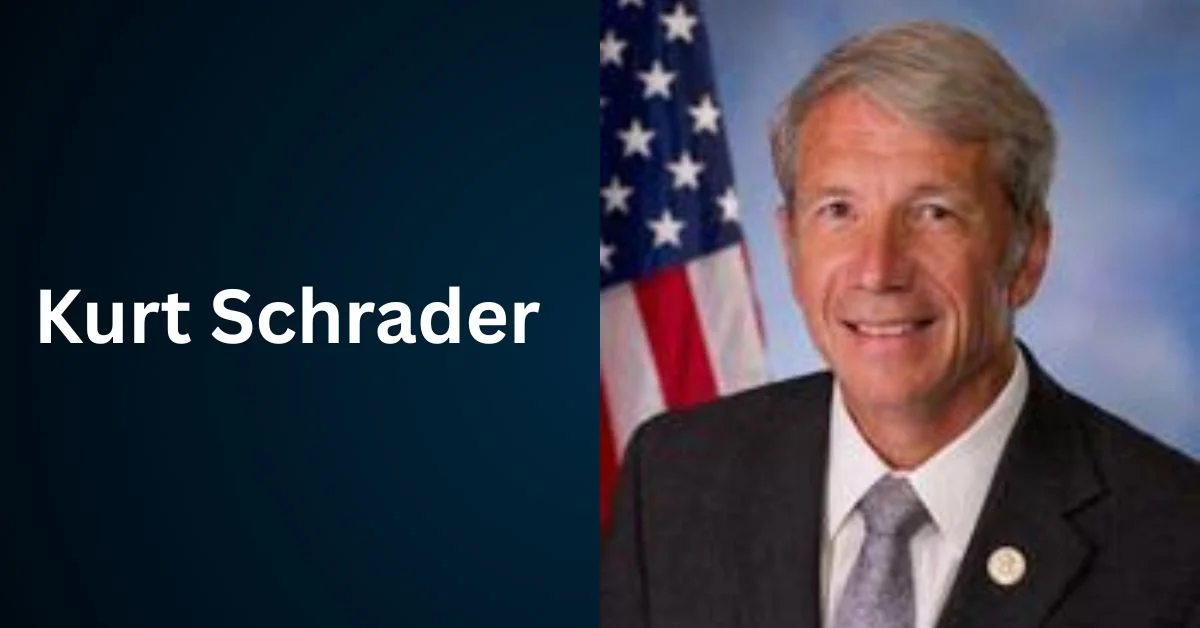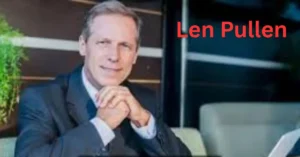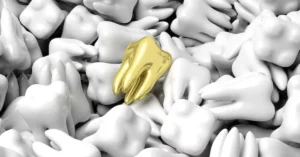DAVIS, Calif. — It is not unusual for a former member of Congress to vanish quietly from public view. Some move into consultancy, others join think tanks, and a few return to their roots. But when Kurt Schrader, a longtime Oregon Democrat known for his centrist leanings and agricultural expertise, was spotted repeatedly in and around Davis, California, political watchers took note — and local residents began to ask questions.
Was he here to teach? Consult? Advocate? Or was this the beginning of a new phase in a public career that many assumed was winding down?
This article takes a close look at the activities, influence, and implications of Kurt Schrader’s presence in Davis—a university town synonymous with agricultural research, progressive politics, and the kind of climate-forward experimentation that has long animated policy debates in the western United States.
Who Is Kurt Schrader?
Kurt Schrader, a veterinarian by training and a moderate Democrat by ideology, represented Oregon’s 5th congressional district for over a decade. First elected in 2008, Schrader gained a reputation as a policy-focused lawmaker, particularly in the areas of:
- Agricultural policy and food systems
- Veterinary public health
- Prescription drug pricing
- Climate mitigation in farming
He was also a founding member of the Blue Dog Coalition, a centrist group within the Democratic Party known for fiscal conservatism and bipartisan deal-making.
In 2022, Schrader lost his primary to a more progressive challenger—a development that signaled a shift in Democratic politics but did not diminish his reputation as an agricultural policy expert.
Arrival in Davis: A Quiet Presence in a Policy-Rich Town
Located west of Sacramento, Davis is home to the University of California, Davis (UC Davis), one of the world’s premier agricultural and veterinary research institutions. It’s also a hub for environmental innovation, ag-tech startups, and policy pilot programs on everything from soil carbon capture to drought resilience.
So when Kurt Schrader, the only veterinarian ever elected to Congress, began appearing on guest lecture panels, regional water board meetings, and local stakeholder forums in Davis in early 2024, it sparked curiosity.
A source close to the UC Davis College of Agricultural and Environmental Sciences confirmed that Kurt Schrader had accepted a visiting policy fellow position in a semi-formal capacity. His work, they noted, was focused on “bridging federal ag policy with local implementation models.”
In practice, this means analyzing how federal agricultural subsidies, climate funds, and water regulations trickle down to places like Yolo County, home to some of California’s most productive — and drought-challenged — farmland.
A Bridge Between Capitol Hill and California Fields
While Kurt Schrader’s public appearances have been few, his influence behind the scenes is growing.
Davis Mayor Lucas Frerichs described him as a “translator of national policy to local reality.” In private working groups and university task forces, Schrader is helping design models for:
- Equitable distribution of federal conservation funds
- Veterinary outreach for underserved rural areas
- Crop insurance reform under climate volatility
- Sustainable grazing techniques that lower methane output
According to those familiar with his work, Kurt Schrader brings an “aggressively practical” lens to policy discussions — often asking not what’s ideal, but what will actually pass, what farmers will accept, and what regulators can feasibly enforce.
A Politician Among Scientists
Perhaps the most compelling element of Schrader’s time in Davis is his collaboration with the agricultural science community.
In seminars and roundtable events, he has urged researchers to rethink their relationship with policy.
“If you want your findings to matter,” he said during a March 2025 climate-ag forum, “you need to write papers not just for journals, but for staffers. If they can’t explain your work to their boss in two sentences, it won’t survive the next markup.”
This bluntness has made him both respected and — at times — a disruptive force among more idealistic academics. But the friction may be part of the point. As one grad student observed after a class where Kurt Schrader guest lectured:
“He made us realize that implementation is the real bottleneck. Not science. Not funding. Politics.”
Consulting and Public-Private Collaboration
Aside from academic engagement, Schrader has reportedly been involved in consulting for ag-tech startups emerging from the UC Davis innovation ecosystem.
One company, which asked not to be named due to confidentiality agreements, confirmed that Schrader advised on regulatory compliance pathways for a soil-enhancing biotech product aimed at carbon capture.
In many ways, this mirrors the arc of other former lawmakers who move into policy-commercial hybrid roles—not as lobbyists in the conventional sense, but as translators between two opaque cultures: bureaucracy and business.
Kurt Schrader’s value, said one founder, is his ability to see regulatory shape before it becomes law. This allows startups to bake compliance into their R&D roadmaps early, potentially saving years in approval delays.
Water, Drought, and a Western Reckoning
In California, politics and water are inseparable. And it’s no coincidence that Schrader — who served on the House Agriculture Committee during key federal water debates — has been particularly focused on regional water resilience planning in and around Davis.
Working with local irrigation districts, agricultural co-ops, and conservation NGOs, Kurt Schrader has helped design proposals for:
- Tiered usage models during drought emergencies
- Water banking mechanisms
- Incentivized fallowing programs
- Federal-municipal groundwater management alignment
These issues, while technically dense, are front-of-mind for Davis-area farmers navigating a second decade of erratic precipitation and regulatory uncertainty.
Schrader’s presence here offers what some describe as “quiet clout.” One local conservation officer put it this way:
“He knows the right staffers in D.C. He understands what a budget rider is. That matters when you’re trying to get $3 million for a local canal retrofit.”
Politics After Office: Influence Without Campaigning
Some wonder whether Kurt Schrader’s presence in Davis signals a future run — either for state office or a policy leadership role in the Department of Agriculture. Those close to him deny any such ambitions.
“He’s done with campaigning,” said one former staffer. “But he’s not done with governance.”
In this, Kurt Schrader resembles a new breed of post-congressional actor — not a talking head on cable news, but a policy craftsman embedded in the places where implementation actually happens.
The strategy is part political detox, part systems repair. And Davis, with its unique blend of science, advocacy, and pragmatism, may be the perfect sandbox.
Local Reaction: Curious, Mostly Positive
Among Davis residents, reactions to Kurt Schrader’s activities are varied but mostly favorable. Unlike some former politicians who carry the baggage of partisanship, Schrader is seen as ideologically centrist and operationally focused.
“He’s not here to score points,” says Anita Contreras, a local sustainability educator. “He’s here to help build systems.”
Still, a few local activists question his centrist record — particularly his past positions on pharmaceutical pricing and climate funding thresholds.
“I’m glad he’s contributing,” said one graduate organizer. “But we also need to challenge the idea that moderation always equals realism. Sometimes boldness is the only way out.”
That tension — between idealism and governance — is something Kurt Schrader seems both familiar with and willing to navigate.
The Broader Implication: Can Ex-Lawmakers Be Useful Again?
In an age of distrust toward institutions, Schrader’s low-key involvement in Davis raises an important question: Can former politicians still be trusted as public servants — even when they’re no longer in office?
The answer may lie in their willingness to get closer to the ground.
For Kurt Schrader, that has meant exchanging D.C. conference rooms for almond groves, science labs, and local water board meetings. In doing so, he’s modeling a version of post-office influence that isn’t extractive, but embedded.
It’s too early to say whether his contributions will lead to measurable policy breakthroughs. But his presence is a quiet experiment in public service continuity — one that may offer a template for others.
Conclusion: What Schrader in Davis Really Means
To many outside political circles, the story of Kurt Schrader in Davis may seem minor — a footnote in the post-office life of a retired Congressman.
But to those working in the complex terrain of agricultural policy, water management, and climate adaptation, his role offers a bridge between federal abstraction and local application.
In a time when policy feels increasingly distant from lived reality, the former Congressman’s willingness to work alongside scientists, farmers, and technologists in a small California town may be more than symbolic.
For more information, click here.









